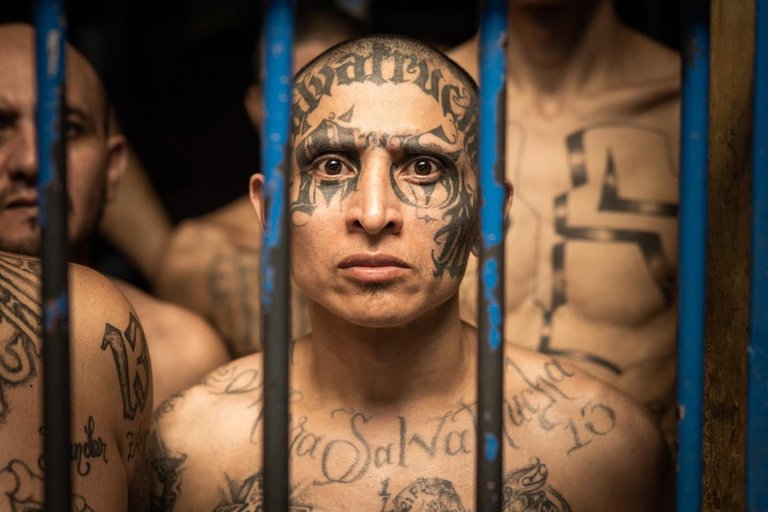
Bukele suggests that controversial state of exception is nearing its end
The Salvadoran president said yesterday that “[at] some point in the near horizon [they] hope to be able to remove the regime of exception, return to normality in the constitutional term and be able to maintain the peace [the country] achieved just with normal judicial activity.” The referred regime was established in March 2022, with successive monthly extensions to date. Local and international activists and human rights organizations have criticized the measure—which forms part of the core of Nayib Bukele's security strategy—for the impact it has had on society. The U.S. government has been one of the most outspoken going against the president on this.
Under the exception regime, individuals don't have to be informed of the reasons behind a potential detention and may also see the privacy of their communications violated. The situation in Salvadoran prisons—overcrowded with gang members—has also led to reports of torture and deaths of detainees in state custody. “We are not killing anyone in prison”, defended Bukele, owner of the century-old Country Club for another five years, although this second term is in direct contradiction with the Constitution. The director of an important penal institution also responded to the accusations, although he only claimed responsibility for what happened after he took office.
 Several members of the criminal gang known as Mara Salvatrucha were sentenced to up to 188 years today. About two months ago a gang member was sentenced to 460 years in prison. Among the victims of those convicted today are inmates beaten to death by them while sharing time in prison (source of the image).
Several members of the criminal gang known as Mara Salvatrucha were sentenced to up to 188 years today. About two months ago a gang member was sentenced to 460 years in prison. Among the victims of those convicted today are inmates beaten to death by them while sharing time in prison (source of the image).Mexico: the problem of violence does not recede by a millimeter
Yesterday, the suspension of classes and commercial activities was reported in a region of the state of Michoacán, due to fierce clashes between at least four drug cartels that also generated road blockades. The municipalities involved are Apatzingán, Buenavista and Tepalcatepec, all in the Tierra Caliente region. The government of Michoacán deployed units of the National Guard, the Army and its Civil Guard to contain the situation, which began in the early hours of yesterday. The weaponry used by the cartels includes AK-47, AR-15, anti-armor weapons (Barret .50 caliber among others), as well as drones for dropping explosives. One of the cartels involved is the powerful Jalisco Nueva Generación.
Here we have again the relentless struggle for control of the drug routes and the also profitable extortion market. In the city of Culiacán, where the Sinaloa Cartel headquarters are located, shootings, road blockades and vehicles set on fire were also reported yesterday, in the continuation of an escalation of violence apparently related to the capture of “El Mayo” Zambada in the United States, where he arrived after allegedly being kidnapped by one of the sons of “El Chapo” Guzmán, who had planned to turn himself in to the US authorities. Around ten murders have occurred in Sinaloa state recently, with one of Zambada's lieutenants included among the victims.
JUST IN
BREAKING: A top Brazilian judge orders the suspension of Elon Musk's X for refusing to name an in-country legal representative. https://t.co/qFgNgtwB8h
— The Associated Press (@AP) August 30, 2024
And what about this also in Brazil?
Rio — already notorious for street muggings, corrupt politicians, ruthless militias and Kalashnikov-toting drug traffickers — has a new public enemy: plushies. Or, more specifically, the joystick-controlled claw machines that dispense them.https://t.co/p4BpH5fuNX
— David Biller (@DLBiller) August 28, 2024
And this is all for our report today. I have referenced the sources dynamically in the text, and remember you can learn how and where to follow the LATAM trail news by reading my work here. Have a nice day.

